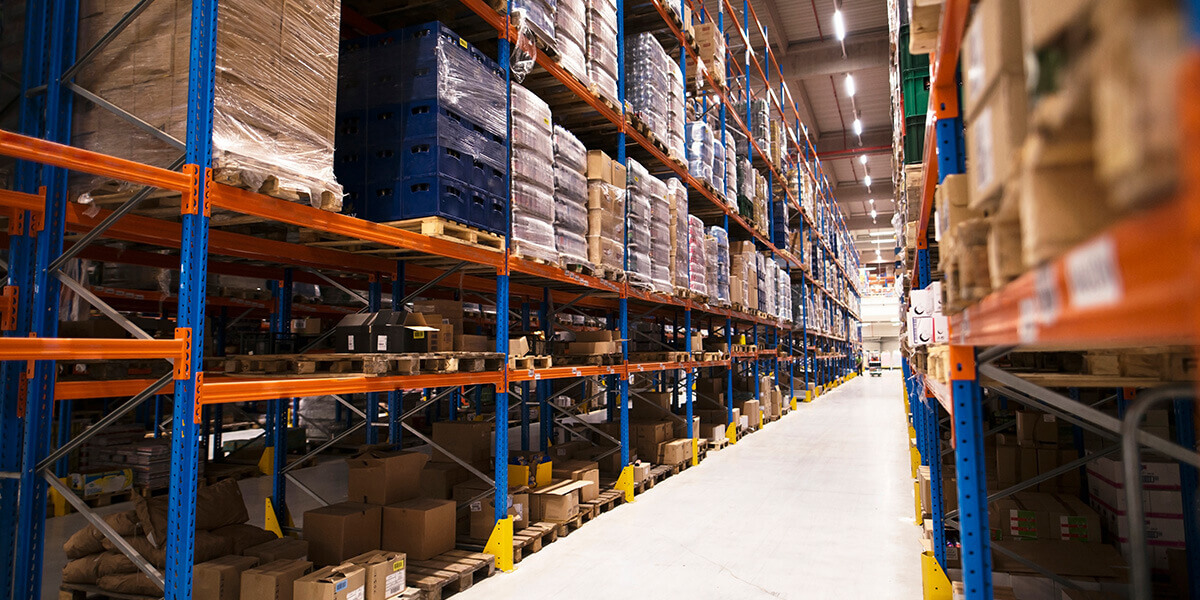
Warehouses in Malaysia and how to select my best warehouse partner?
In businesses, warehousing and logistics play a crucial part whether the warehouse is managed internally or outsourced to third-party warehouses or fulfilment centres. The importance is to identify and analyse if the services provided by the warehouse fit the needs of a business. There are several types of warehousing facilities in Malaysia.
Traditional Warehouse

This kind of warehouse would be able to provide the best rate card as they are probably located far away from town, near to the ports. The services provided are mainly to unload containers, customs clearance and also to deliver to your outlets in pallets or cartons. The charges are mainly by rental and value added services that the business requires them to perform.
A traditional warehouse management system, customised just for this kind of business would generally be in place. Otherwise, the inventory management as well as warehouse control could also be potentially manual (probably dependent on one single manager). When the system and software is customised based on the warehouse requirement, it could also be rigid and not flexible to cater to new operation modules such as e-commerce order fulfillment. It could work best for business that requires customs clearance and short term warehouse solution but when it comes to order fulfillment, a fulfillment center would be more suitable for e-commerce businesses.
This kind of warehouse would be able to provide the best rate card as they are probably located far away from town, near to the ports. The services provided are mainly to unload containers, customs clearance and deliver to your outlets in pallets or cartons. The charges are mainly for rental and value-added services that the business requires them to perform.
A traditional warehouse management system, customised just for this kind of business would generally be in place. Otherwise, the inventory management, as well as warehouse control, could also be potentially manual (probably dependent on one single manager). When the system and software is customised based on the warehouse requirement, it could also be rigid to cater to new operation modules such as e-commerce order fulfilment. It could work best for business that requires customs clearance and a short-term warehouse solution but when it comes to ordering fulfilment, a fulfilment centre would be more suitable for e-commerce businesses.
Fulfilment Centre

A fulfilment centre provides solutions to sellers to manage their retail and e-commerce orders. A few filtering processes could involve testing the system or e-commerce warehouse management system before engaging their services. Some of the fulfilment centres have warehouse management systems in place that are not integrated with e-commerce platforms and marketplaces. It means that sellers have to download the orders themselves and send them to the fulfilment centre to process the orders. When the orders are processed, an inventory report would be generated manually by the centre to the seller, for the seller to update their e-commerce stores' inventories one by one. This process would be tiring and it does not seem to be a full outsourcing function for the sellers.
The advantage of having a system means trackability of their work could be accessed by the sellers. As a seller, you need to have peace of mind that the fulfilment centre has a system to track all your inventories and the progress of order fulfilment. Otherwise, should there be any loss in inventory, it would be a challenge for the fulfilment centre to explain themselves to the seller.
How to select the best warehouse for my business?
This is highly dependent on the nature of your business. Today, if you are not selling online, very likely there is a massive competition that you are unaware of. If you are selling online, you need to have a system to help you streamline the processes, ensuring the readiness of your backend so you could scale your business without worries.
With that being said, a fulfilment centre would probably serve what you need. A flexible e-commerce warehouse management system would allow the fulfilment centre to have flexibility in providing additional services to meet sellers' requirements. Store & Send, a warehouse located in the heart of Petaling Jaya, Malaysia, deployed Shoko eWMS and has tripled the revenue in a year. The reason is as follows:
1) Location advantage
With the advantage of location, many sellers could provide additional selling points by telling their customers to do self-collection to reduce the cost of shipping. Alternatively, providing same-day delivery services would not cost as much compared with warehouses that are located on the outskirts of the state. Shoko eWMS assisted Store & Send to have a various methods of check out at various marketplaces and web stores so that the operation is guided and inventory is always accurate on real-time basis.
2) Value added services
If a fulfilment centre has rigid operation modules such as default wrapping and default charges to sellers, it might impose unnecessary stress on the sellers. Shoko eWMS allows customisation to be done to operation modules that could be unique to every single seller that engages the fulfilment centre, whilst not compromising on the quality of output because every user of Shoko eWMS will be well aware of the requirement in place.
3) Deployment
Shoko eWMS creates convenience for the fulfilment centre as well as the sellers by providing customer support at all times in terms of deployment. The process is similar to plug-and-play software whilst customisation is still available in the module. The key is to ensure that business does not have to be on hold just for deployment itself.
4) Price
There is no limitation on users because the fulfilment centres have to scale their business and to remain competitive, Shoko eWMS does its part to ensure that fulfilment centres provide state of art services while paying for the services that Shoko eWMS performs.
Should i outsource my warehouse function?
It really depends on your business model. If you are in FMCG, very likely the margin that you obtain is not sufficient to cover the cost charged by fulfilment centres because of their charging mechanism. Therefore, it would probably be more sensible to deploy an eWMS for internal physical inventory management. As such, the suitability of the warehouse and the system depends on your business needs.